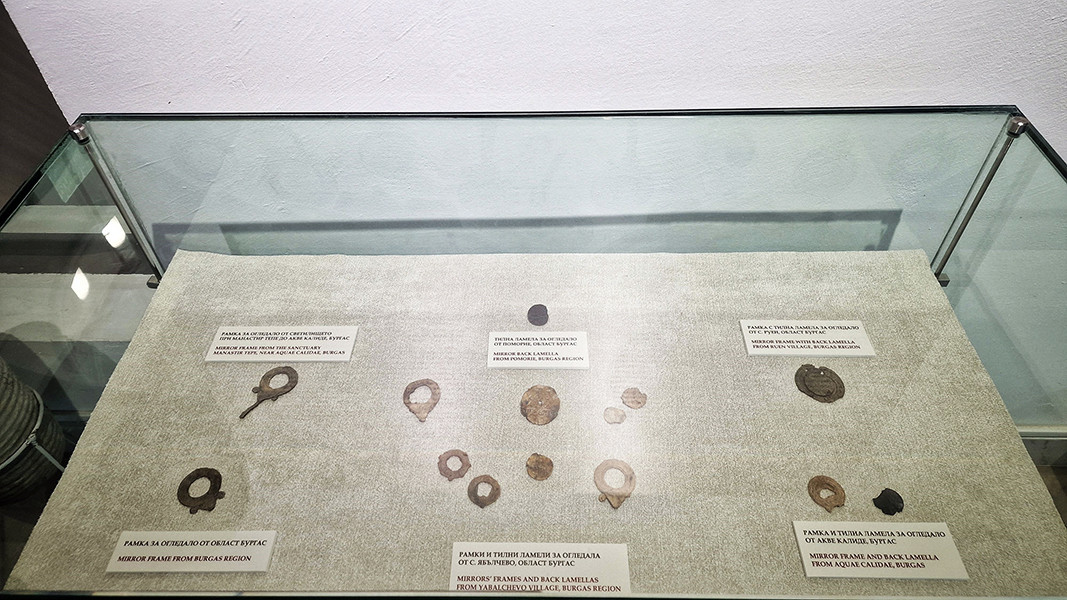A display case with small mirrors is part of an exhibition dedicated to the theme of female beauty in antiquity, presented in the Archaeological Museum in the city of Burgas. The exhibition is entitled "Whims through Antiquity. Look in the mirror" and was created on the occasion of March 8, International Women's Day. In antiquity, there were two types of mirrors - functional and votive. The first were used by high-ranking ladies, and the latter were placed as a gift to the goddess when women asked her to grant a wish. The discovery of similar objects in burials in the region is evidence that there was a shrine to one of the goddesses from the Greco-Roman pantheon nearby.
The mirrors presented in the Burgas museum have been restored and date from the II-IV century. They are made of lead. One will find interesting the inscriptions on them. Some of them read: "You are beautiful", "Nice things belong to beautiful women", "Beauty, take me."

On one of the most interesting mirrors presented in the exhibition, there is no inscription, but there is an image of a goddess, presumably Hera, Aphrodite or one of the three nymphs.
Some of the mirrors were found during archaeological works near the village of Rouen, the village of Yabalchevo, Aquae Calidae, the region of Pomorie, etc.
The exhibition can be seen until the end of March.
See also
A unique statue from the Roman period of Odessos, preliminarily dated to the late 2nd to the first half of the 3rd century, has been discovered during excavation works near the train station in Varna, said archaeologists from the Varna Regional..
Petrich municipality has received an award for original promotion of the tourist destination Heraclea Sintica , Katya Stoyanova, head of the "Restoration, conservation and socialization of Heraclea Sintica" project, said this for BTA. The award..
What was the animal world like in the region of what is today the town of Trun more than 80 million years ago – that is the question paleontologists from the Bulgarian Academy of Sciences’ National Museum of Natural History have been trying to answer...
105 years ago, on November 27, 1919, a treaty was signed in the Parisian suburb of Neuilly-sur-Seine, officially ending Bulgaria's..

+359 2 9336 661
